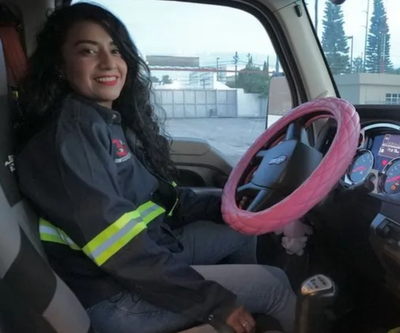It can be challenging to be a Latina in the workplace, especially in corporate America. Imagine helping one of your family members deliver 12 heavy boxes to a meeting, where your family member worked as a corporate employee, then a non-Latino person from the meeting looked at you– as you were placing the boxes onto the table.
“Gracias,” they said.
“You're welcome,” you reply in an English non-ethnic accent.
Afterwards, you ponder, just because you have a darker complexion, this doesn't mean that you don't speak English or that you wouldn't be able to understand a simple “Thank you.” Which, no one else in the meeting had expressed. This opens a whole discussion on how Latinas in this workplace including Black women and other self-identifying women of color (WOC) might be experiencing microaggressions in the workplace.
This is known as an unconscious bias and a microaggression. There are different types of microaggressions. All can be intentional or unintentional. Microaggressions come as verbal, such as a derogatory phrase, behavioral through actions and mannerisms, and environmental, such as the lack of representation, and diversity in a company, or being the only person of color in the room.
A similar situation happened to Talia Fox, the CEO of KUSI Global, a Harvard fellow, a holder of a bachelor's and master’s in Psychology. Fox was one of the main speakers at a major keynote event, being one of the few who were leading the tenure professors. When she came out of the bathroom, a professor approached her and began asking questions and directing her to the cleaning supplies for the bathroom– even handing her a bag of trash.
“This is a really complicated thing for me because I also don’t want to diminish how important that work is. I think it is really important work. But, it was an extreme unconscious bias. I was dressed up in a suit, I had my pearls on. I was confused about, ‘Oh, did I look too casual, did I look like I was cleaning the bathrooms?’ said Fox in a previous podcast interview co-hosted at Latinitas Magazine, a former partner of BoldLatina.
According to a report published by McKinsey & Company Diversity Wins, around a third of 1,000 companies from 15 different countries, in various economic sectors, increased in representation, and diversity. Those that had the greatest increase in diversity, saw an overall outperformance of 48% compared to the least diverse companies.
Not only does the progress towards diversity and representation yield a more profitable result, but it is needed to combat the way-too-common microaggressions and biases taking place in the offices. In an interview with CNBC in 2020, Lean In CEO Rachel Thomas said white employees and specifically those with dominating leadership positions lack allyship with women of color and make it difficult for women to advance in their careers.
A Lean In survey results found only around 19% of Latinas and 10% of Black Women would say they feel supported by their white co-workers. For this percentage to increase, white allies in the workplace need to show an appreciation of work done by their Latina, Black, and ethnic co-workers.
White Allies need to demonstrate inclusion by allowing them proper time to speak in meetings, asking for their ideas and opinions on work or projects, and acknowledging their feedback by putting them into motion. Being kind, understanding, and professional, will not only lead to a positive work atmosphere, but it would give the feeling of importance and valued work.
Thomas emphasizes allyship in the workplace “recommend them [WOC] and [white allies] step aside so that they get the opportunity.”
“Those are concrete examples of true allyship,” Thomas said. “Which is using your power to create opportunities for others.”
A couple of ways companies can begin increasing representation and diversity is by:
Taking a holistic approach to job applications. Encouraging applicants who are missing one or two qualifications but with relevant enough and equivalent experience to apply. Since the effects of systemic racism and inequality can cause applicants to be discouraged because they lack specific qualifications. An example would be a job description asking for college experience, which an applicant may not yet have, but instead they have a year worth of internship experience in the related field.
Addressing a zero-tolerance discrimination policy and encouraging an open and safe environment for workers to feel comfortable enough with communicating about microaggressions, unconscious biases, and any negative incidents that are taking place at work.
Hiring a Leadership Strategist in Diversity, Equality, and Inclusion to put together programs, and plans, to diversify representation in the workplace or taking related courses by partnering with a business that specializes in professional development, management, and leadership, such as KUSI Global, Inc.
Making sure Equality and Equity is being reflected in the quantitative numbers of a company. As stated in The Atlantic, Black women make 67 cents, Latina women make 57 cents, and white women make 82 cents compared to every dollar white men make at work. And even though 87% of companies state their commitment to making representation and diversity a priority at work, their employees have shown to be less likely to deem that their companies are actually committed to making it a priority. As further stated in, Diversity Wins by McKinsey & Company: How Inclusion Matters.
Real work needs to be implemented into workplace culture and strategy in order to see the long awaited progress towards equality and success in various sectors of diversity and representation across the board.






